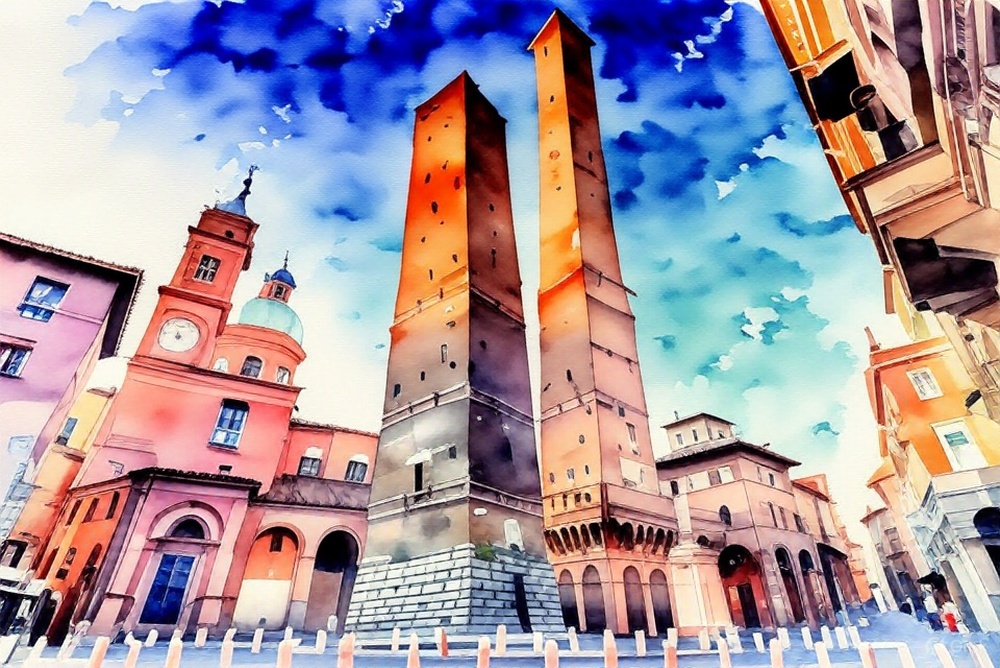Italy
Italy’s Democratic Party under fire: a wave of judicial inquiries across the Country

Italy’s Democratic Party (PD) finds itself embroiled in a series of high-profile judicial inquiries stretching from the bustling financial hub of Milan to the picturesque coastal region of Marche, and extending to Bologna and Puglia. These investigations, touching upon urban planning, public procurement, and political conduct, paint a complex picture of a party grappling with allegations of misconduct and struggling to maintain its moral compass amidst the political fray. The common thread appears to be the alleged blurring of lines between public interest and private gain, often with an ironic twist given the party’s historical stance on legality.
The Milanese Mirage: “Social Housing” and Shady Skylines
Milan, often heralded as a model of urban regeneration, is now at the heart of a vast urban planning scandal dubbed “Sistema Milano” or “Palazzopoli”. The core of the investigation revolves around allegations that urban development decisions were diverted from institutional channels like the City Council and urban planning offices, and instead made in private settings, often involving informal meetings between developers and decision-makers.
A central figure in this intricate web is Giuseppe Marinoni, the former president of the Landscape Commission, who is currently under arrest for corruption. Investigators noted his ironic comments about implementing a “shadow PGT” (Territorial Government Plan) and receiving “high fees”. The prosecution alleges that 3.9 million euros were paid to “double-face” designers who, as public officials on the Landscape Commission, approved projects they later received lucrative contracts and consultancies for from the very same developper.
The scandal highlights a significant legal dispute concerning building permits. The former urban planning assessor, Giancarlo Tancredi, claimed that the 1942 urban planning law, which requires detailed plans for buildings over 25 meters, was “disapplied” in Milan because it was old and unsuited for a fast-moving city. However, the Supreme Court of Cassation emphatically rejected this notion, reaffirming the law’s validity and calling it a “fundamental and indispensable principle,” stating that significant building interventions require public planning and proper permits, not just a simple certified notification of activity (SCIA). This judicial rebuke suggests that Milan’s “Ambrosian Rite” of construction, which allowed massive projects with minimal oversight, flourished in a “deep misalignment” and deregulation.
Another glaring issue is the city’s “social housing” program. Despite grand promises by Mayor Giuseppe Sala in October 2024 to create “10,000 affordable homes” within ten years, only a few dozen are currently being planned out of the promised total. Critics highlight the semantic confusion surrounding “social housing” in Italy, which can encompass everything from public housing to private subsidized rentals, unlike most European countries where it refers strictly to publicly-owned rental homes. Ironically, while Milan has seen extensive construction, it has failed to solve its housing problems, with approximately 5,000 public houses remaining vacant in the municipal patrimony despite 17,000 annual requests. The assertion that the municipality “should not earn” from these large-scale interventions, as Tancredi stated, is seen as surreal, implying a disregard for public revenue that could fund essential services. The ongoing investigation also touches upon the “Pirellino” project, where developer Manfredi Catella allegedly sought a regional bonus.

Artistic AI image of the Maxi Valentino Rossi Helm
Matteo Ricci and the Marche “Affidopoli”
In the Marche region, the spotlight falls on Matteo Ricci, the former mayor of Pesaro and current MEP, who is the PD’s candidate for regional president. Ricci is under investigation for corruption, though crucially, he is not accused of receiving money directly. Instead, the accusation centers on the political benefit he allegedly gained from improper direct assignments (“affidamenti diretti”) of public funds, often through initiatives like murals and a giant Valentino Rossi helmet, which boosted his “popularity and consensus”.
The investigation implicates Ricci’s close collaborator, Massimiliano Santini, who allegedly facilitated the allocation of over 100,000 euros in public funds and utilities to associations that then provided him with benefits. Ricci, in his defense, has shifted blame to his collaborators, claiming he is the “injured party” and expressing surprise that the notice of guarantee was served the day after the election date was set. A peculiar detail emerged from a catering supplier for Ricci’s electoral dinners, who claimed to have been asked to accept payments “in black” and to invoice a public company for part of the expenses. Adding to the chaotic atmosphere, Ricci’s electoral headquarters in Ancona was vandalized with the word “ladro” (thief).
The inquiry has plunged the PD’s key ally, the Five Star Movement (M5S), into a significant dilemma. The M5S, which prides itself on its anti-corruption stance, faces four unappealing options: maintaining support, asking the PD to change candidates, running their own candidate, or not participating, all of which would result in losses for the M5S. They are waiting for Ricci’s interrogation on July 30 before making a final decision. The irony here is palpable: the party that made “honesty” its banner is now forced to choose between political expediency and its founding principles, a scenario humorously described as the “paradox of the legalitarians paying the price instead of the illegalitarians”.

Artistic image of Bologna, the Two Towers
Bologna and Puglia: The Ripple Effect
The wave of inquiries is not limited to Milan and Marche. In Bologna, the Court of Auditors has ordered verifications into a 115,000 euro direct assignment to an architecture firm related to urban planning, prompting calls for Mayor Matteo Lepore to clarify the situation. Also in Bologna, the public prosecutor’s office has launched an investigation, as yet without any suspects, into a series of real estate developments where a system similar to that in Milan is suspected.
Meanwhile, in Puglia, the re-candidacy of outgoing governor Michele Emiliano has reportedly caused a “rift” with Antonio Decaro, another potential candidate, further complicating the party’s regional strategy.
A Party in Turmoil? The various investigations have put the PD leadership, particularly Secretary Elly Schlein, in a difficult position. Faced with increasing scrutiny, the party appears to be seeking diversions, such as attacking the government’s migrant reception centers in Albania, a topic on which the Interior Ministry ironically stated that the Albania protocol “represents a fundamental investment” that will reduce costs and speed up repatriations. Critics, including the M5S, have highlighted a perceived “double morality” within the PD, accusing them of being “guarantists” for their own members under investigation while adopting a “justice-seeking” stance against political adversaries. This selective application of moral principles, according to some observers, is a “misery of Italian politics” that often shifts based on convenience rather than consistent values.
As these inquiries unfold, the PD finds itself at a crossroads, facing not only legal challenges but also a fundamental test of its political integrity and its ability to navigate a treacherous landscape where accusations of misconduct threaten to undermine its very identity.






